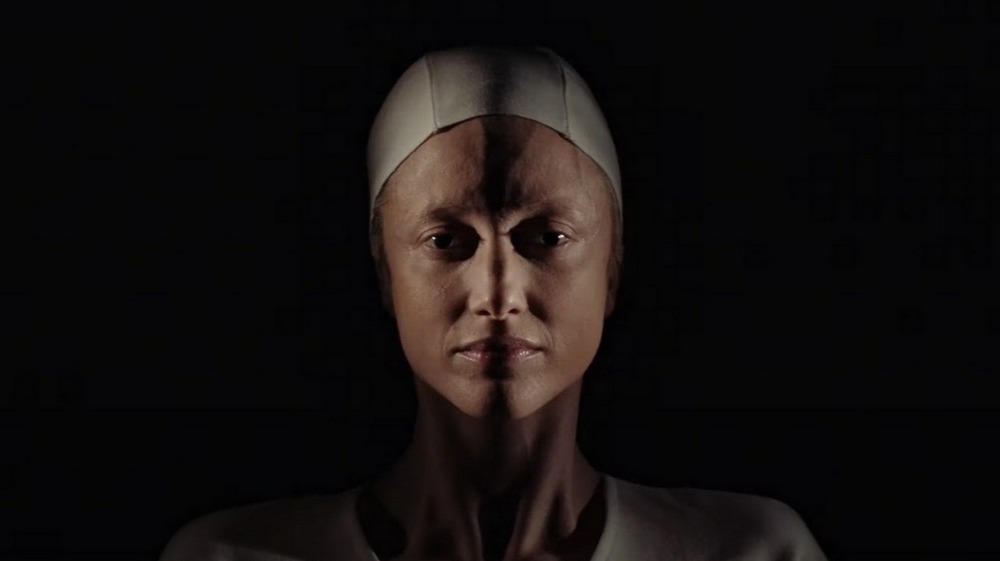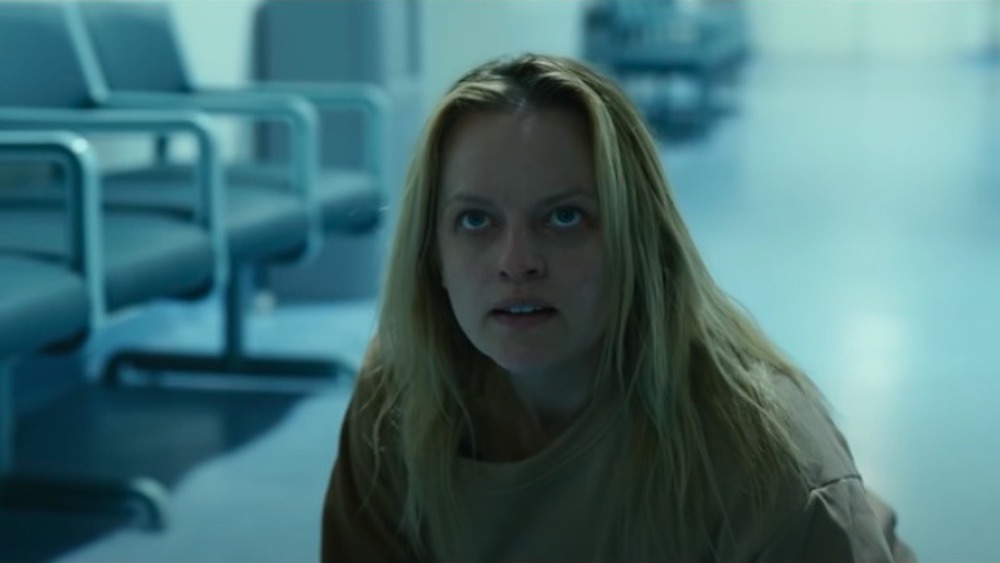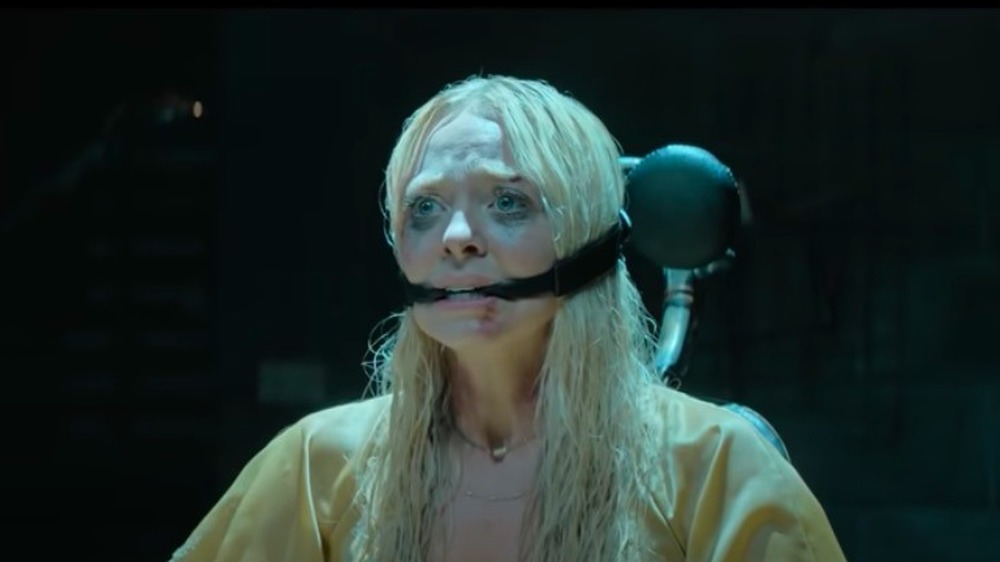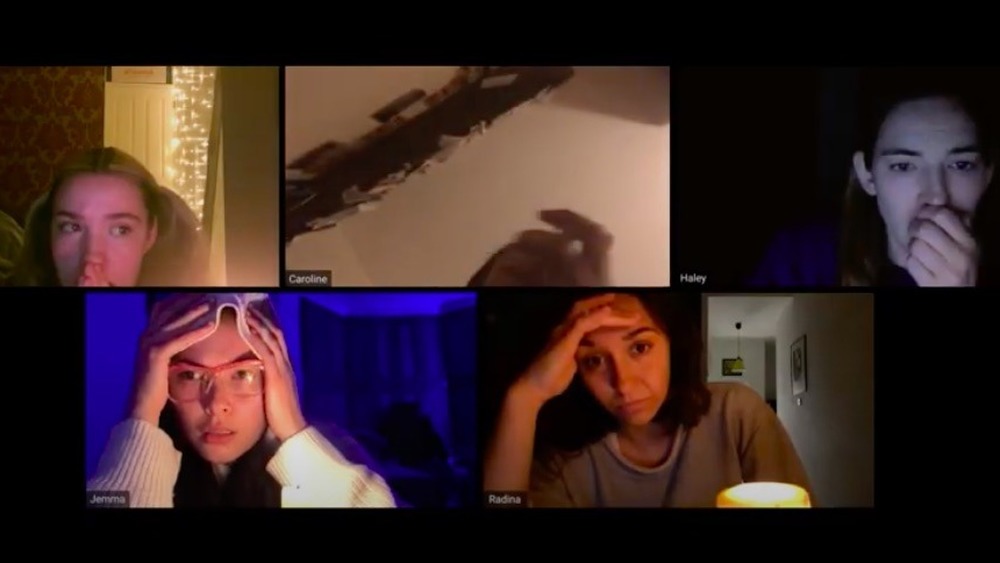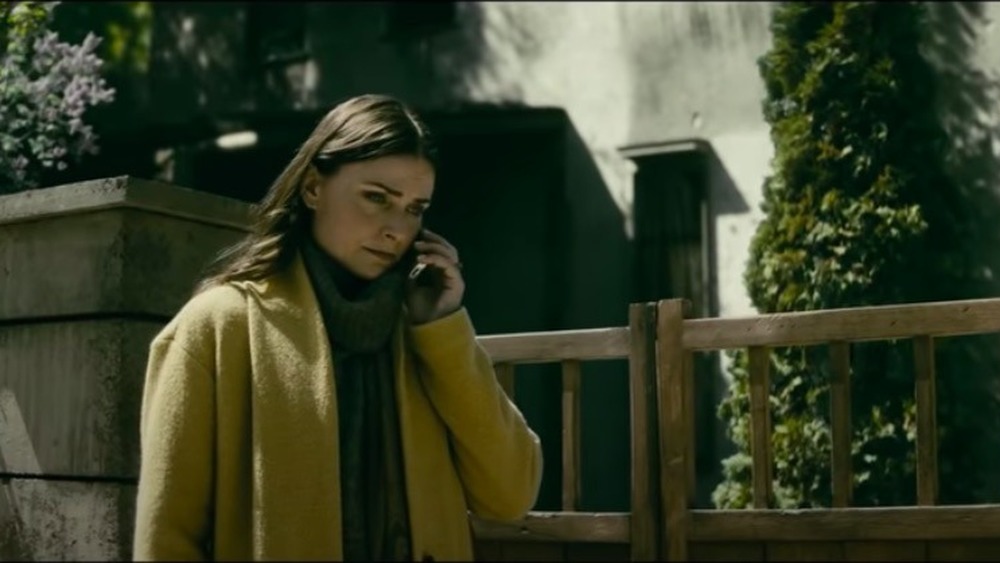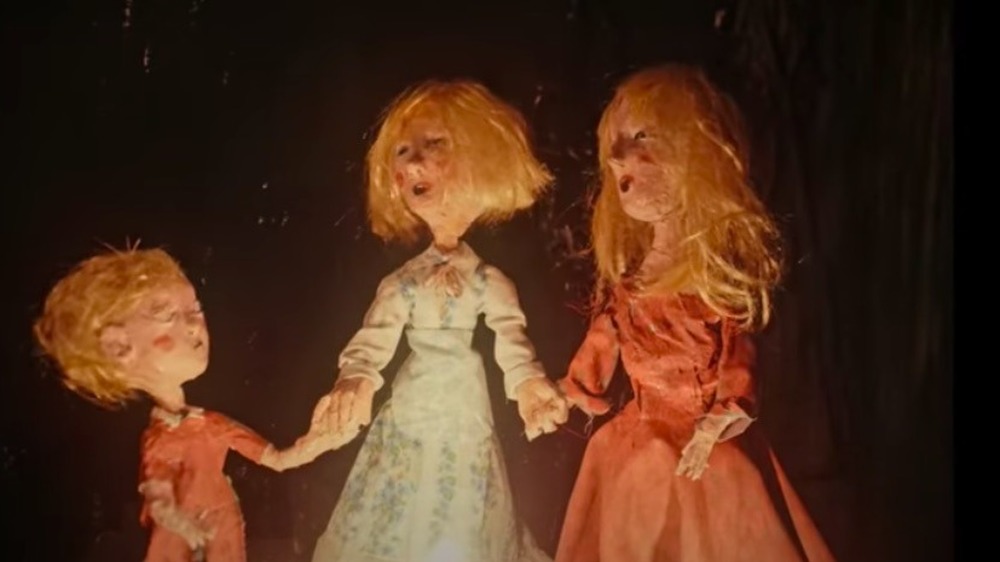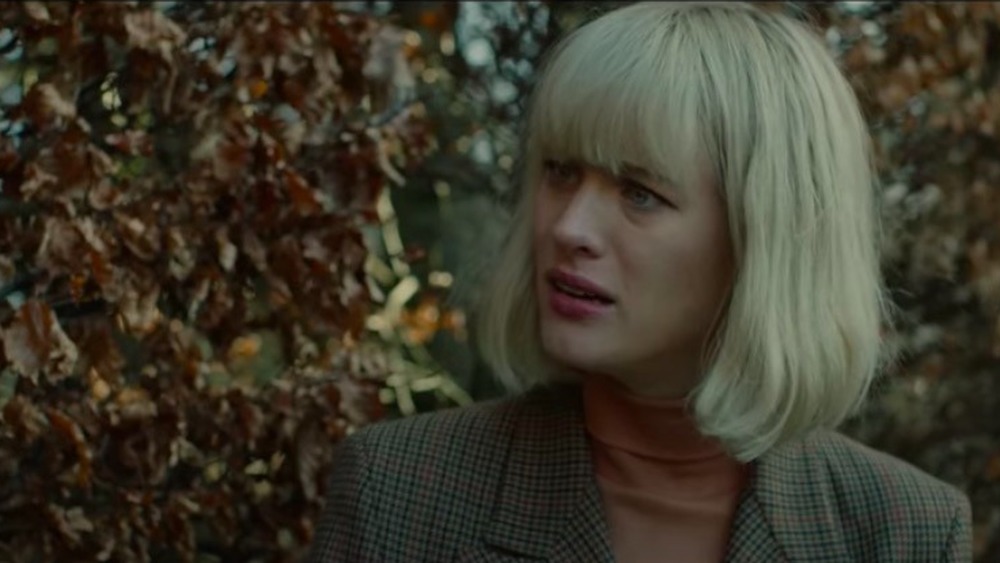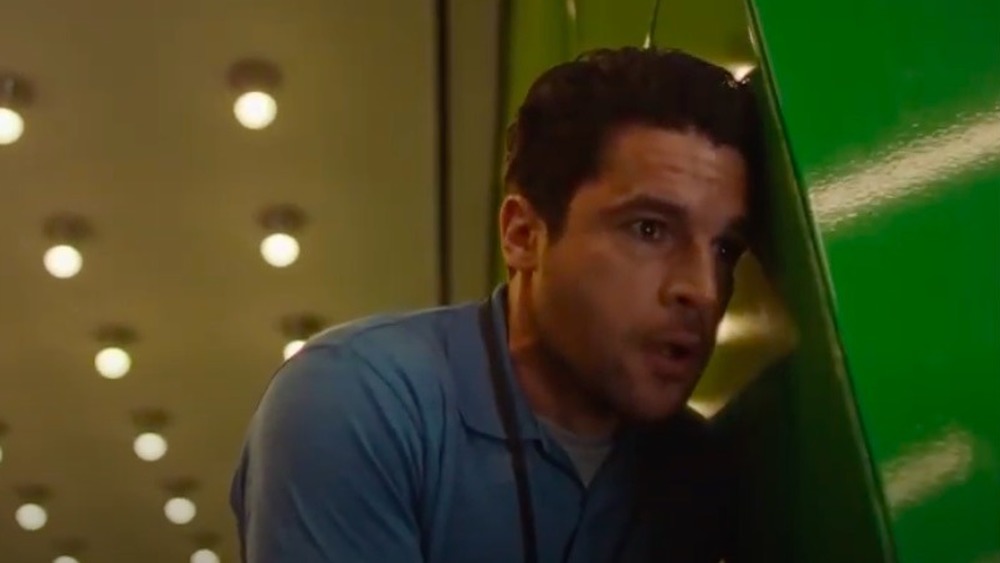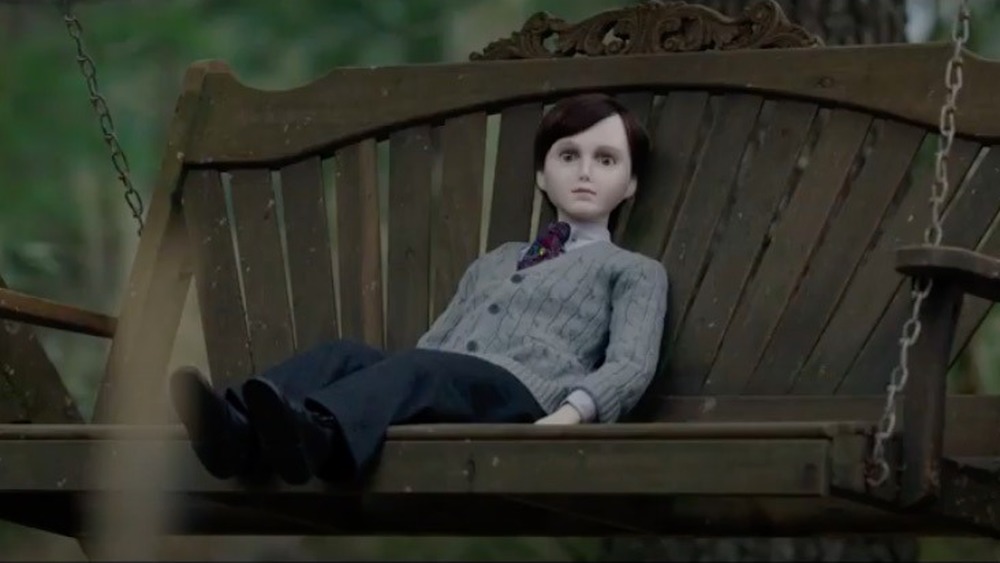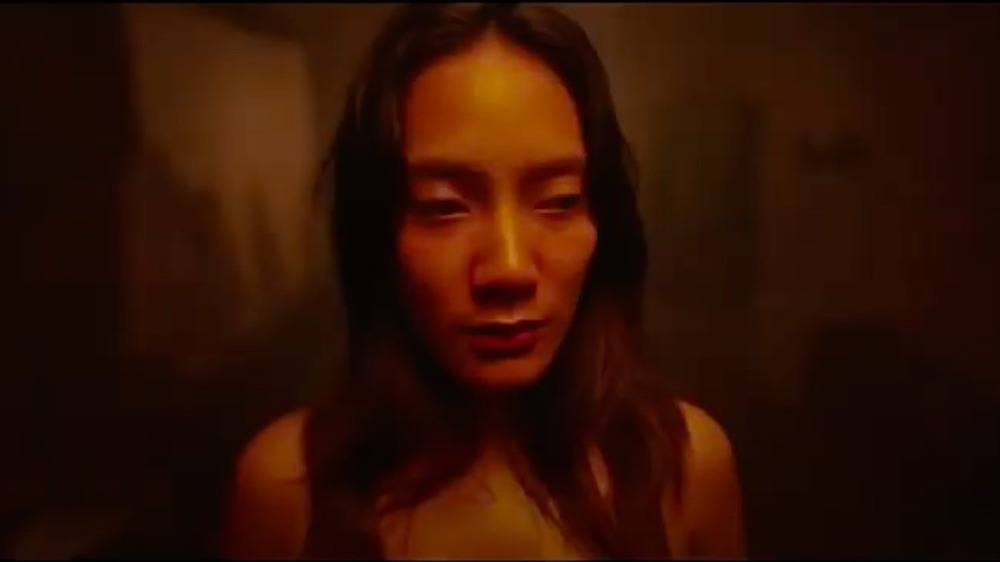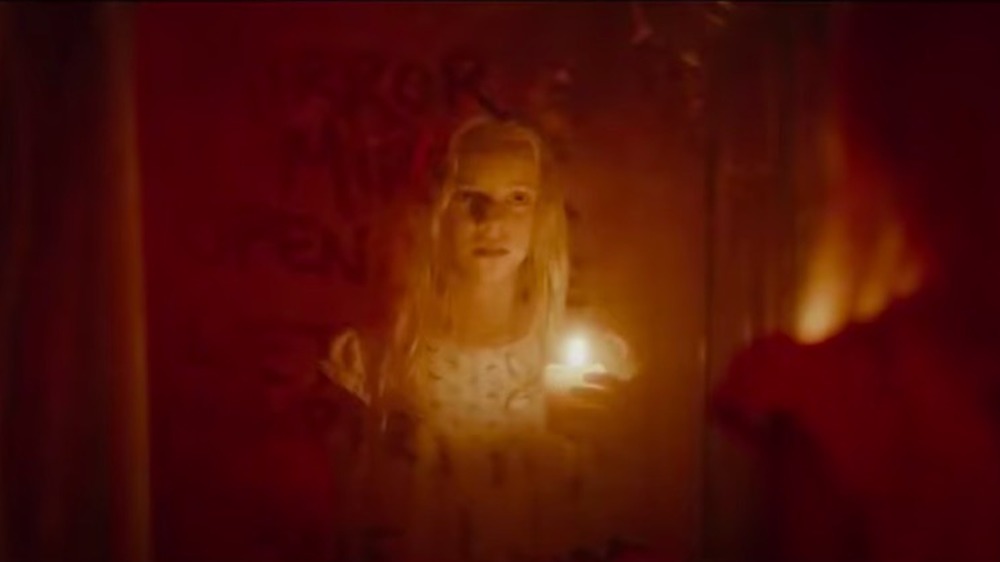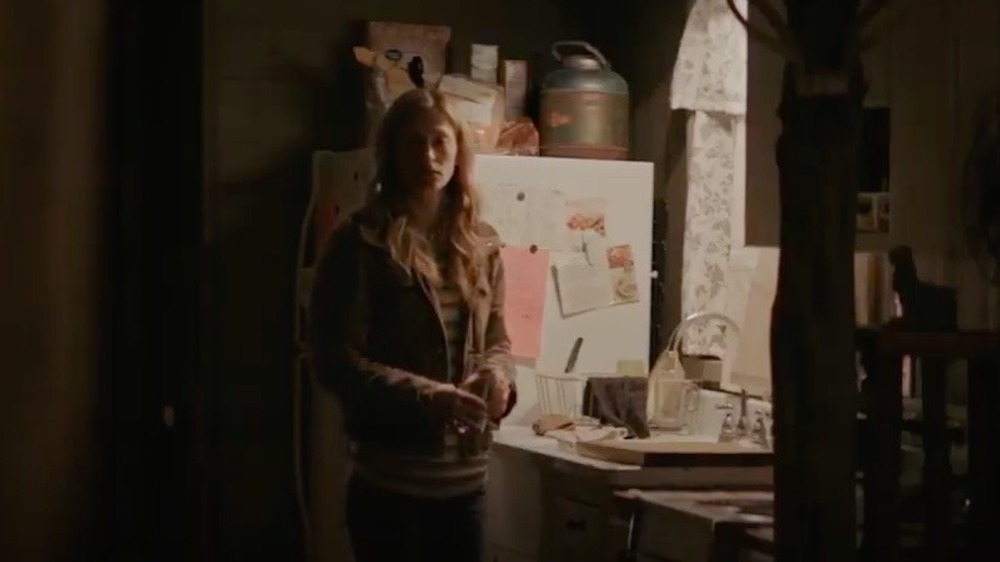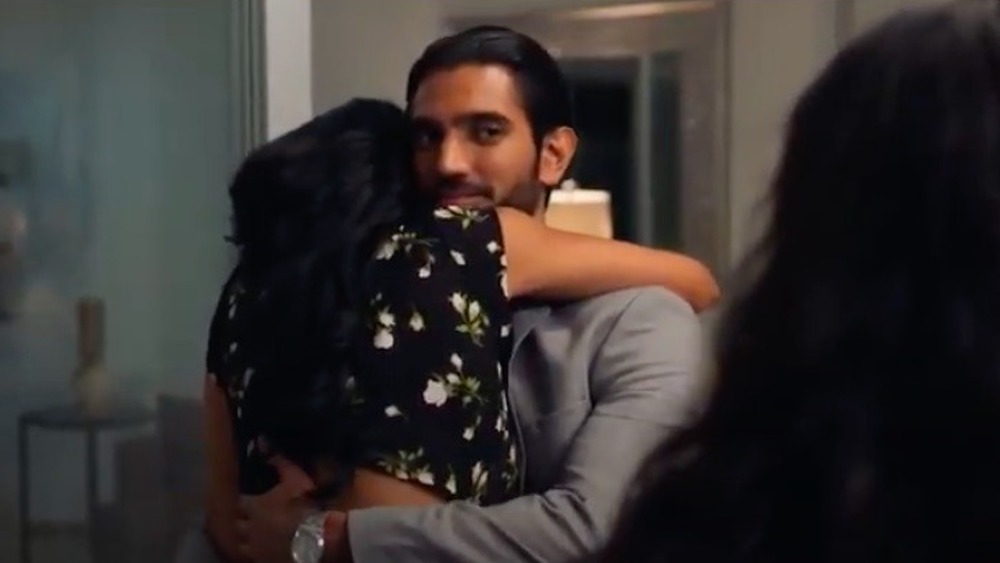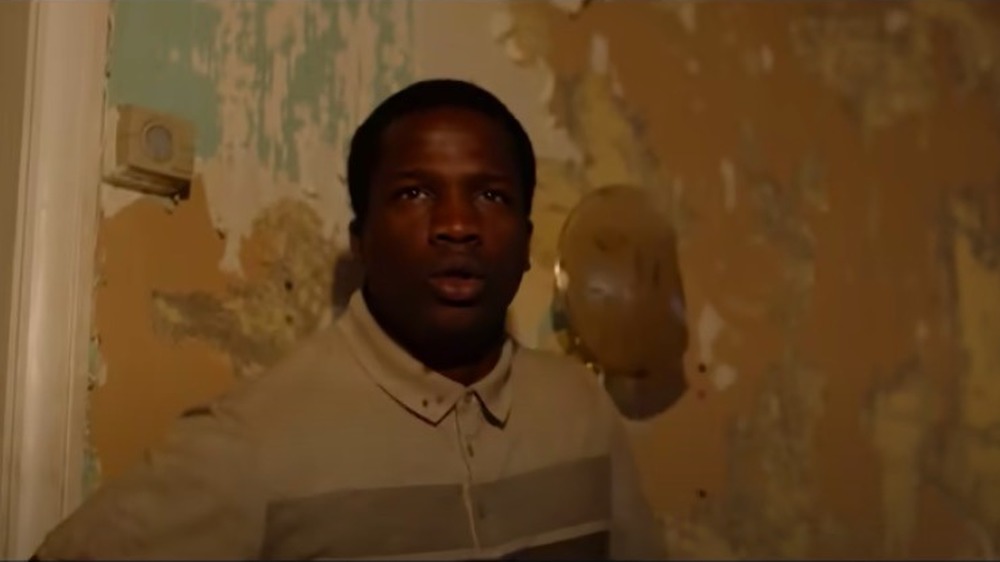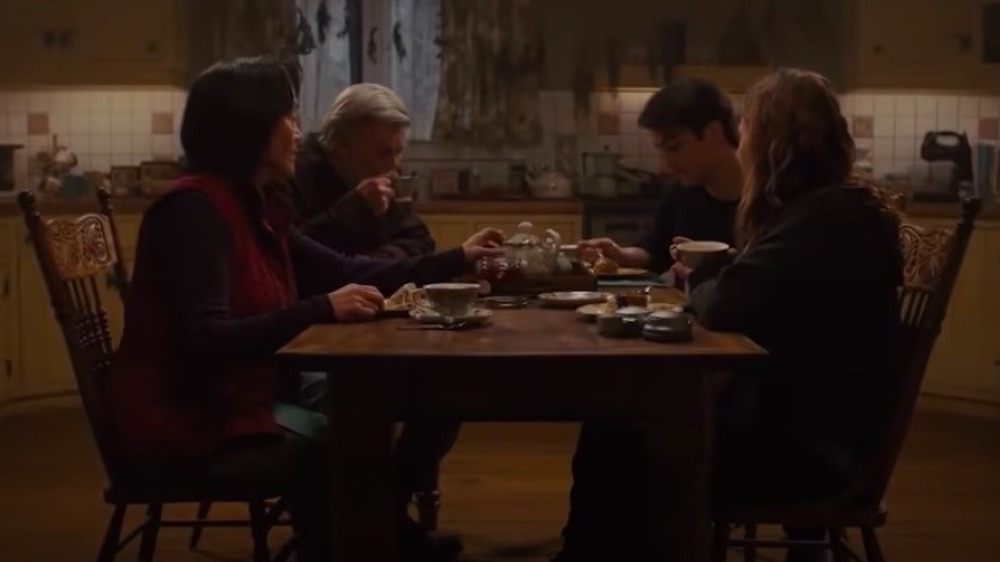The 7 Best And 7 Worst Horror Movies Of 2020
With a raging pandemic that engulfed the world, 2020 was already pretty scary on its own. That didn't stop plenty of horror films from coming out, all of which provided a distraction from the terrors of reality. And distract they did, either as successful renderings of the genre or as flops so bad they're almost funny.
A few horror movies this year captivated both critics and audiences, such as Netflix's His House, which currently has a perfect score on Rotten Tomatoes. Other attempts to scare audiences this past year were not as successful, like Blumhouse's Fantasy Island, which lands on the other end of the Rotten Tomatoes spectrum with an ultra low 7% on the Tomatometer. His House and Fantasy Island are just two of the horror flicks of the year which attracted attention for better or worse: here's a rundown of the seven best and the seven worst horror releases of 2020.
Best: The Invisible Man
Directed by Leigh Whannell and starring Elisabeth Moss, The Invisible Man is loosely based on H.G. Wells' 1897 novel of the same name. It introduces Moss's character, Cecilia, a woman trapped in an abusive relationship with Adrian (Oliver Jackson-Cohen), a wealthy scientist. After she escapes, Adrian fakes his own death, having found a way to make himself invisible in order to stalk and terrorize Cecilia.
The film was praised for its modernized take on the classic story, centering on a woman dealing with the trauma of an abusive relationship — a very real fear at the root of the enhanced premise. The LA Times referred to it as a "gaslighting thriller," one that successfully becomes "a story about the dangers of not believing women." Moss, meanwhile, garnered an abundance of praise for her leading performance. The New York Times described Moss's "full bore performance" as what sets the emotional stakes, with her ability to "let you follow Cecilia's inner states even when she goes quiet."
By utilizing classic scare tactics of the genre, such the terror of what cannot be seen (by character or viewer) and agonizingly slow suspense, The Invisible Man stakes its claim as a genuinely scary film.
Worst: Fantasy Island
While films like The Invisible Man were successful at scaring people, other horror attempts of the year only sullied the genre. One of those failures is Blumhouse's Fantasy Island, a loose reinvention of the classic TV show directed and co-written by Jeff Wadlow. Believing they've each won a contest, a group of people show up at a tropical resort called Fantasy Island, where enigmatic proprietor Mr. Rourke (Michael Peña) makes the guests' fantasies come true. But those fantasies quickly turn into nightmare scenarios and the guests must figure out the mystery behind the island in order to save themselves.
Most critics agreed that the film didn't have a firm grasp on its own foundation, trying to do too much at once and contradicting its own plot. Variety described the film as playing out "like an out-of-control pitch meeting, lurching from one ostensibly clever idea to the next without taking the trouble to connect the dots." RadioTimes called Wadlow's direction "comatose" and the meant-to-be-shocking twists "stupefying."
With the lead actors also criticized for overacting, Fantasy Island ended up as a place where very few critics — and not many more fans — enjoyed their stay.
Best: Host
The only film on this list to not only acknowledge but utilize 2020's pandemic, Host, directed and co-written by Rob Savage, takes place during the COVID-19 lockdown. Friends keeping in touch via Zoom calls decide to hold a virtual séance, during which they accidentally invoke a demonic presence.
Host takes advantage of the idea that everything is scarier when experiencing it alone; most of these characters are living alone, while it's not unlikely that a viewer would also be watching this alone in their home while under lockdown. The medium, Seylan (Seylan Baxter), even makes a comment to them before the séance that they'll be less protected during the session because they are not physically together.
Thrillist deemed it "the scariest movie of 2020," one that served as a reminder that even in your own safe home, "there are still plenty of things to be afraid of." The manner in which this film was made was also widely praised, with remote filming, a controlled set and restrained point of view. Little White Lies praised Savage's direction, stating, "Good directors embrace limitations and Rob Savage has more than proven his worth on that front."
Worst: The Grudge
In 2004, Hollywood made The Grudge, an English-language remake of a Japanese horror film called Ju-On: The Grudge. The remake, helmed by the writer-director of the Japanese original, Takashi Shimizu, did well in box office terms — it's the second highest-grossing horror remake — but holds just a 40% rating on Rotten Tomatoes. Despite the mediocre score, the film has led to two sequels plus 2020's identically titled The Grudge, described as a "sidequel."
Directed and written by Nicolas Pesce, it takes place both before and during the events of the 2004 film and follows a detective (Andrea Riseborough) who's investigating a murder scene, which turns out to be a house that has had multiple killings occur in it. The house in question possesses a curse that overtakes anyone who enters it — they're bound to die violently.
The film garnered the most criticism for adding nothing to the already existing story and for the complicated non-linear timeline that is too confusing to add any depth. The Times UK gave it just one star, lamenting that "the most terrifying aspect of this horror reboot of the long-running Grudge franchise is that it exists at all."
Best: The Wolf House
La Casa Lobo – translated as The Wolf House – is a Chilean stop-motion animated film directed by Cristóbal León and Joaquín Cociña. It follows a young girl named Maria (voiced by Amalia Kassai) who flees a community that placed a curse on her and takes refuge in the first place she finds, a strange house in the middle of the woods. Loosely based on the real-life story of the Dignity Colony, a Chile-based Nazi sect known for horrific murders and torture which arose after World War II, The Wolf House is all the more terrifying for its narrative's origins.
The film's stop-motion animation format was also widely praised: The New Republic described the practice as "unlike anything you've seen before, in which every single frame is an individual monument." Variety agreed, writing that the film created a feeling of "'How on earth did they pull that off?' as characters and objects emerge, evolve and transform in a relentless rhythm."
The film's successfully disturbing nature is what makes The Wolf House so memorable for viewers, along with the stunning visuals. The Hollywood Reporter called it a "deeply uncanny" film that resulted in "an unsettling viewing experience," which, after seeing it, may strike the viewer as putting it extremely lightly.
Worst: The Turning
Henry James's classic 1898 novella, The Turn of the Screw, had perhaps its biggest year ever in 2020. It is the basis for Netflix's horror series The Haunting of Bly Manor, as well as Floria Sigismondi's theatrical film The Turning. But while Bly Manor received a positive reaction from critics and a decent one from audiences, The Turning was not nearly as successful and garnered itself a meager 12% on the Tomatometer.
The Turning introduces Kate Mandell (Mackenzie Davis), who takes a governess job at the Fairchild Estate to take care of two kids, Miles (Finn Wolfhard) and Flora (Brooklyn Prince), after the death of their parents. Mysterious events soon begin unfolding and Kate must discover the dark secrets of the estate's past.
The Chicago Reader acknowledged the film's potential, along with its talented cast and director, but came to the conclusion that "a bevy of offscreen characters that only serve to complicate an already meandering plot and a sorely muddled ending rob it of its full potential." Further, the plot was laced with overdone horror tropes — jump scares, dream sequences — but did nothing to make them feel fresh or worthwhile. The New York Times declared that these "repetitive goosings" resulted in a film that was "humorless — and scare-free."
Best: Possessor Uncut
Brandon Cronenberg's Possessor takes place in an alternate 2008, in which an implant used to take over other people's bodies exists. A corporate assassin named Tanya Vos (Andrea Riseborough) uses the implant to carry out her hits while controlling others' bodies. She returns to her own body by making the host commit suicide. As the job begins to take a toll on Tanya, she becomes trapped in the mind of a man named Colin Tate (Christopher Abbott) who she isn't fully able to control, and her sanity further begins to fray.
One of the aspects that works best about this film is its uncanny setting — the alternate 2008 is different than the one we experienced, but is not too far-fetched to seem impossible. The Atlantic noted the depth of the setting, writing, "Possessor offers disturbing and timely observations about the world we already live in." The strong script was also the subject of much praise for its firm grasp on its own concepts and smooth handling of those ideas. The New Scientist explored this, writing: "Possessor feels both fresh and tense and full of surprising twists and turns. It successfully explores our experiences with modern anxieties and how we deal with them."
Finally, the film was lauded for its gore, with The Ringer calling its gore factor "impressive" and declaring that its "many gross-out moments will certainly be a big selling point for horror aficionados."
Worst: Brahms: The Boy II
In William Brent Bell's Brahms: The Boy II – a standalone sequel to his 2016 film The Boy – Liza (Katie Holmes) and her son Jude (Christopher Convery) survive a home invasion that spooks both of them and results in Jude developing mutism. Liza's husband Sean (Owain Yeoman) suggests the family move out of town and they end up at a manor in the countryside. There, Jude finds an old porcelain doll and names him Brahms, without realizing the doll possesses a sinister nature.
The biggest critique of the film was the ways in which it contradicted The Boy, which actually received some praise for its clever twist ending — the supernatural doll was never alive and the son perceived to be dead was still alive and living in the walls, doing the tormenting. Yet in the 2020 sequel, the logic backtracks and suddenly the doll actually is supernatural, meaning that the two films don't actually work in tandem.
Polygon addressed how the new logic of the sequel didn't carry the weight it needed to make the plot work, saying, "More frustrating than the hazy nature of the character's abilities is Bell's refusal to depict them in action." Thus, the audience doesn't get to see the doll move or wreak any havoc, leaving the question of why he's supernatural in the first place — and why this sequel even exists.
Best: Impetigore
Impetigore, a Indonesian horror film from writer-director Joko Anwar, follows Maya (Tara Basro), who has inherited a house in her ancestral village. Maya and her friend Dini (Marissa Anita) travel to the property to look into selling it. However, Maya is unaware that the people of the village community are set on tracking her down in order to remove a curse, which they can only do by killing her.
Many of the technical aspects of the film were applauded, including its pacing, intensity and suspense. A rave review on RogerEbert.com read, "Following the electrifying opening sequence, (Anwar) shifts gears to slow-burn mode, proving he is just as capable at ratcheting up the suspense via a more deliberate and measured approach."
In another positive review, Box Office Prophets emphasized just how horrifying and disturbing the contents of the film were, warning that viewers would "likely lose sleep" after watching it. The review also praised Anwar's "masterful, hypnotic approach," which resulted in a film that was a "gripping — if terrifying — experience."
Worst: Behind You
Behind You, directed by Andrew Mecham and Matthew Whedon, takes place in, like countless other horror films, a creepy house — this one notable for its lack of mirrors. When one of the film's two young sisters does come across a mirror, in the basement their aunt forbade them from going into, she accidentally releases an evil presence that had haunted her mother and aunt years earlier.
The main gripe with Behind You was its lack of originality; amidst a multitude of horror films about haunted houses, this one did nothing to stand out. And beyond the unoriginality, the film took hits for its lazy writing, as laid out in a pan by Decider. The piece outlined the film's "unconvincing speeches that explain the concept in vague terms," which resulted in it being "profoundly derivative." It's no wonder Behind You only managed to eke out a mere 6% on Rotten Tomatoes.
Best: The Dark and the Wicked
Bryan Bertino's The Dark and the Wicked introduces two siblings, Louise (Marin Ireland) and Michael (Michael Abbott Jr.), who return to their family home, a secluded farm in a small town, upon learning of their father's illness. With their mother acting strangely, the siblings begin to suspect something evil is taking over the family.
While some of the "worst" movies on this list emit a vagueness based on lazy writing, The Dark and the Wicked leans into an ambiguous nature that accentuates its mystery and suspense. The LA Times discussed how this benefits the film, stating, "There's no literal or karmic explanation for why an otherworldly force is terrorizing a Texas family; it just is. That randomness keeps the film from being predictable. There's no playbook or magic bullet."
Meanwhile, the New York Times praised how Bertino utilized filming techniques to create the overall horrific atmosphere: "Electric jump-scares and bursts of violence are all the more shocking for their brevity, while sidelong, slightly elevated camera angles suggest the gaze of a lurking, malevolent presence."
Worst: Evil Eye
In Evil Eye, directed by Elan Dassani and Rajeev Dassani, Pallavi (Sunita Mani) begins dating Sandeep (Omar Maskati), which initially thrills her mother, Usha (Sarita Choudhury). But after meeting the new boyfriend, Usha begins to notice strange similarities between him and someone from her past, quickly becoming fearful of this dark connection.
According to IndieWire, Evil Eye had potential, but ultimately missed the mark and even chose the wrong genre: "Its dramatic and emotional elements are so much better tuned." The review concluded by deeming it "a film that doesn't dare get really chilling and thrilling until its final minutes."
Also noting the missed opportunity of setting this story in a different genre, Empire addressed the ways in which the film became muddled without a firm footing in the horror realm. The reviewer stated, "It's tonally uneven — the first portion of the film plays out as an extended meet-cute." Maybe something resembling a meet-cute can briefly show up in a horror flick, but not one that takes up half the running time — and certainly not one that makes you question the genre you're watching.
Best: His House
His House easily earns its place on the "best" list — with praise across the board, it has a 100% score on Rotten Tomatoes. Written and directed by Remi Weekes, the film follows a refugee couple, Bol (Sope Dirisu) and Rial (Wunmi Mosaku), who flee from South Sudan to an English town to start a new life and escape their war-torn country. They soon find evil lurking in the public housing estate they move into, as well as in the town itself.
Like other films on this list, His House blurs genres — but this time it works. The Los Angeles Times wrote, "The script's cleverest gambit is to blur our sense of what kind of movie we might be watching — a thriller about a haunted house or a portrait of the dehumanization of the refugee experience? — and to suggest that there might be no meaningful difference."
A script laced with complexity and sincerity was a major factor in the film's strength and success. Rolling Stone explored how His House seamlessly took "the conceits of the genre — the home haunted by restless spirits; the demon predator that latches itself onto its victims and follows them wherever they go — and analogizes them to the things a refugee couple might experience in their new homeland."
Worst: Books of Blood
Brannan Braga's Books of Blood is based on the short story collections of the same name by Clive Barker. The film contains three stories that interconnect in what was described as "a journey into uncharted and forbidden territory through three tales tangled in space and time."
Critics found the writing in this Hulu original film to be as vague as that description. A significant amount of the criticism discussed the ways in which the characters were not fully formed, making them hard to become emotionally invested in. Polygon wrote that even the most fleshed out character "often comes across as a detailed concept rather than a living, breathing human." Polygon also addressed the dialogue and story, declaring that the plot consists of "every other line of dialogue [being] either exposition or some form of cliché."
But it was Variety that really got to the point of where the film went wrong: "With a certain kind of horror, a laugh's as good as a scream, and Books of Blood delivers plenty of the former."
